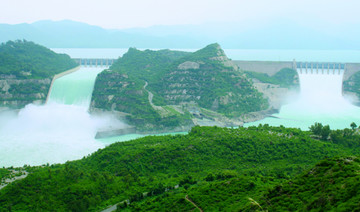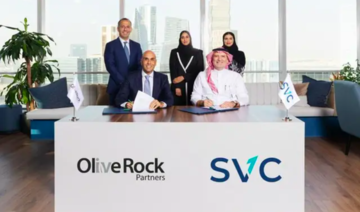ISLAMABAD: In his second address to the nation since taking office, Prime Minister Imran Khan warned the nation that if dams are not built, Pakistan will face a drought by 2025. He urged overseas Pakistanis to contribute funds toward building dams in the country.
The prime minister said he has been receiving presentations for the last two weeks on the issues of the nation. “I made a promise to my Pakistani citizens that I would bring to light the problems being faced in our country. The biggest problem we are facing today is that of water scarcity,” explain PM Khan in his address.
Narrating facts from his meetings, the PM said that in post-partition, 5,600 cubic meters of water were available to every Pakistani but today that number has decreased to 1,000 cubic meters. “Globally, 120 days worth of water being stored is considered safe, we only have the capacity to store water for 30 days,” warned PM Khan.
Stressing on the importance of building dams in the country and the failure of doing so being detrimental to our future generations, Khan warned, “We are left with no option but to build dams. Experts have warned that if we don’t start building dams now, seven years from now (by 2025) Pakistan will face a drought.”
Warning the country, and overseas Pakistanis, of the outcome of having no water Khan said, “If we don’t have water we will not be able to grow crops, if we are unable to grow crops we will not have food, there will be a calamity. This is why we have to start making dams from today.”
Khan also lauded Chief Justice of Pakistan (CJP) Justice Saqib Nisar for his efforts in raising funds for the construction of dams.
“I am appealing to Pakistanis all over the world today, start contributing fund from today for the construction of dams in the country, especially overseas Pakistanis. If each of our 9million overseas citizens contributes $1,000, we will accumulate enough money to construct both the dams and our reserves will also improve.”
“No one will give us loans; we are so deep in debt that we cannot even afford to take loans any longer. We have to construct these dams ourselves. I assure you that I will protect your money.”
PM Khan warns of drought, urges overseas Pakistanis to contribute to fund
PM Khan warns of drought, urges overseas Pakistanis to contribute to fund

- PM explained that Pakistan only has the capacity to store water for 30 days
- Experts have warned that if we don’t start building dams now, Pakistan will face a drought by 2025
Venture investments spark renaissance of Saudi innovation

RIYADH: In Saudi Arabia, a dynamic transformation is unfolding within the entrepreneurial landscape, powered by the robust growth of venture capital, which achieved an impressive 86 percent compound annual growth rate from 2019 to 2023.
This financial infusion has been a game-changer, propelling the Kingdom past the $1 billion mark in venture capital investment last year and igniting a wave of innovative thinking among Saudi entrepreneurs.
Simply put, VC is a category of private market investment and financing. A VC firm raises capital from investors, referred to as Limited Partners, and uses that capital to fund promising startups they have determined as likely to have high growth potential in an emerging category.
A vibrant scene
“The rise of venture capital in Saudi Arabia is fueling a vibrant entrepreneurial scene,” said the founder of Saudi-based VC firm Nama Ventures.
Offering a unique perspective on this financial phenomenon, Mohammed Al-Zubi shared his insights with Arab News about how venture capital is energizing the entrepreneurial scene in the Kingdom.
Al-Zubi described this financial influx as a vital nutrient, fostering a fertile ground for innovation and growth within the Kingdom.
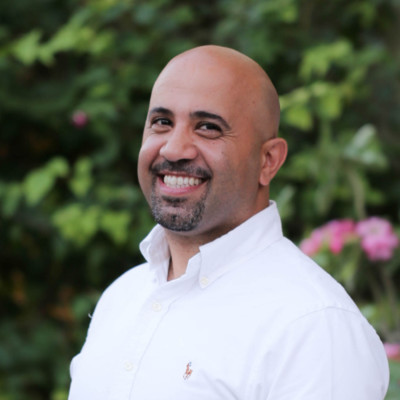
Ripple effects
“Startups get crucial funding, expert guidance, and exit pathways, attracting and retaining ambitious talent. This creates a ripple effect — successful ventures generate high-quality jobs, attracting more skilled professionals and expertise,” Al-Zubi told Arab News.
However, he explained that challenges like limited seed funding and skill mismatch require more attention.
“By fostering a diverse ecosystem and addressing these gaps, Saudi Arabia can harness the power of VC to build a thriving and sustainable entrepreneurial powerhouse,” Al-Zubi added.
Echoing Al-Zubi’s remarks, Tariq bin Hendi, senior partner at Global Ventures, told Arab News that the Kingdom’s VC growth reflects its booming economy.
“Saudi Arabia is a large market with compelling macroeconomics and significant funding, which in turn is re-shaping the regional startup landscape,” Hendi said.
“Increased investment has helped start-ups to digitize, scale and accelerate their business operations — with many success stories: Tarabut, Zension, RedSea, Zid and Hakbah being among the most well-known,” Hendi added.
An innovative economy
Hendi emphasizes the crucial role of venture capital in the economic diversification of Saudi Arabia.
He notes that sectors like agritech, fintech, and cleantech are attracting significant investments, aligning with Saudi Arabia’s Vision 2030 goals.
“The increase in investment saw Saudi Arabia secure MENA’s (Middle East and North Africa) highest VC funding in 2023, which is also aligned with the country’s Vision 2030 objectives,” he stated
“Venture capital’s investment in nascent technologies and innovative ventures allows for early-stage experimentation and for new start-ups to respond to analogue-based problems previously difficult to navigate through digitalization,” Hendi added.
According to him, this synergy between venture capital and startups not only drives technological progress but also offers insights into the regulatory landscape, promoting economic diversity and innovation within the region.
He also highlights the broader impact of venture capital, noting how it enables local businesses to scale and address global challenges, creating job opportunities and demonstrating the Kingdom’s potential in leading sustainable startup growth.
Moreover, Hendi points out that venture capital stimulates international collaboration, attracting global investors and reducing investment risks, further bolstering Saudi Arabia’s position as a dynamic hub for economic activity and innovation.

Furthermore, in his article “Venture Capital Fundamentals: Why VC Is A Driving Force Of Innovation,” Mark Flickinger, general partner and chief operating officer at US-based BIP Ventures, describes VC as a critical factor for economic innovation.
“VC is a rewarding form of private market investment that gives innovators a real chance to transform their ideas into businesses. It connects founders and investors, driving progress and successful outcomes for both,” Flickinger said.
“And for everyone who is part of this virtuous cycle of funding, building, and scaling market-changing businesses, VC is a way to support the impact of the innovation economy – which is the economy today,” he added.
The challenge
Hendi underscores the significant transformation underway in Saudi Arabia, driven by the nation’s economic diversification and digitalization, which is fueling a burgeoning demand for talent and innovation.
With a young, tech-savvy population, the Kingdom is ripe for entrepreneurial ventures, evidenced by success stories like Tabby, he explained.
The growing ecosystem, supported by incubators and successful exits, showcases the country’s potential as a hotbed for technology-driven businesses catering to consumers, enterprises, and government sectors.
The challenge now, according to him, is to further enhance this vibrant environment, making Saudi Arabia even more appealing for entrepreneurs.
He advocates for continued deregulation and the creation of conditions that encourage innovation, enabling entrepreneurs to develop products and services that resonate with consumers and drive economic growth.
The goal is to not only maintain the momentum but to elevate Saudi Arabia’s status as a premier destination for starting and scaling innovative ventures.
How to utilize funding
As VC growth continues to expand, startups are pressured to find efficient ways to use their funding to boost the overall ecosystem.
Al-Zubi shares his advice stating: “Imagine your funding as rocket fuel – you have to blast off without burning it all at once, right?”
“To fly long and far, focus on essentials. Build a stellar team, fuel growth with customer love, and lay a strong financial groundwork,” Al-Zubi added.
“Track your rocket’s path with data, experiment with new maneuvers, and stay tuned to the space weather. Be open with your investors, listen to wise advisors, and don’t be afraid to adjust your trajectory if the wind changes. Remember, long-term success is a marathon, not a sprint. Spend smart, learn fast, and keep your eyes on the stars,” he added.
Furthermore, Hendi advocates for meticulous planning in resource allocation, emphasizing the importance of understanding the market, timing for product launches, and strategic deployment of capital.
According to Hendi, startups must have a clear grasp of their financial roadmap, with a detailed understanding of expected expenditures over set timelines, to ensure sustained growth and success in the evolving economic environment.
Startup Wrap – Egyptian firms secure funding to boost Saudi expansions after battling stagnation

CAIRO: Startups in Egypt have started to gain momentum with several ventures securing funding to boost expansion efforts to the Kingdom.
Following a period of startup funding stagnation, Egyptian founders have made their way back to the regional venture capital space with a flurry of investment deals and expansion strategies already in place.
Egyptian fintech startup Waffarha has secured a seven-figure seed round from Value Makers Studio to expand its footprint.
Founded in 2012 by Tarek Magdy, the platform offers significant discounts, with daily deals ranging from 50 percent to 90 percent.
The new capital will enable Waffarha to enhance its technology, recruit talent, and expand into Saudi Arabia and additional markets.
Moreover, in 2018, Fawry for Banking Technology and Electronic Payments, one of Egypt’s largest financial institutions, acquired a share of 30 percent of the company.
The company claims to boast a network of over 1,000 merchants and over 3,000 stores that cater to more than 5 million customers, without any subscription fees.
Over the last 12 years, Waffarha claims to have emerged as a top-tier lifestyle website and mobile app.
Egyptian HR tech startup Bluworks secures $1m in pre-seed funding
Bluworks, an HR and Software-as-a-Service solutions provider based in Egypt, has raised $1 million in pre-seed funding led by Khawarizmi Ventures and included Camel Ventures, Acasia Ventures, and angel investors.
Founded in 2022 by Farah Osman, Hussein Wahdan, and Nour Ahmadein, Bluworks aims to optimize costs for businesses through data-driven decision-making.
“With so many HR softwares on the market, not one is built to manage blue-collar workers,” Wahdan said.
“Since the process of managing this type of workforce is so manual, errors frequently occur, leading to penalties and deducted salaries with no oversight from the workers, causing them to leave and ultimately contributing to high turnover rates,” he added.
“Currently, companies can spend about 7-10 days just closing their payroll accounts, but with Bluworks, this time can be cut down to one day - all while leveraging data and insights on their workforce,” he stated.
The company aims to utilize the funding to support its product development goals, expand its presence, and grow its team.
Egypt-based fintech Bokra closes $4.6m pre-seed funding round

Bokra, an emerging fintech startup from Egypt, has secured $4.6 million in pre-seed funding, led by DisrupTech Ventures and SS Capital.
Founded in 2023 by Ayman El-Sawy, Bokra offers diversified investment solutions for retail and SME investors.
The funds will support the launch of the Bokra app, expansion of its investment products, and scaling operations across the Middle East and North Africa region.
“We are dedicated to accelerating financial inclusion and elevating investment awareness across MENA,” El-Sawy said.
“In a region where financial needs and aspirations are ever-changing, Bokra is poised to become the preferred investment platform for both individuals and small and medium-sized enterprises looking to diversify their fractional ownership portfolio in a simple, trackable and informed way,” he added.
Egyptian startups win big in Saudi-Egyptian program
Ten Egyptian startups have received awards from the VMS Bridge program, aimed at enhancing connections between Egypt and Saudi Arabia’s entrepreneurial ecosystems.
Winners included Amanleek, Farhy, Sprints, Career180, and Jamaykaa, which will explore investment opportunities during a 4-day visit to the Kingdom.
Other winners, Notchnco and Neqabty, received free company licenses in Saudi Arabia, and AgriCash, ReNile, and ICareer won access to Arweqah’s training programs.
Jordan-based healthtech startup Arab Therapy secures $1m seed funding
Arab Therapy, a Jordan-based mental health platform, has raised $1 million in seed funding, led by Flat6Labs and Vision Health Pioneers, with participation from international angel investors.
Founded in 2021 by Tareq Dalbah, Omar Koudsi, and Hekmat Al-Hasi, Arab Therapy connects users with licensed mental health professionals.
The investment will facilitate the company’s market expansion and the initiation of business to business sales operations.
TVM Capital Healthcare invests $17m in Neurocare Group AG
TVM Capital Healthcare, based in the UAE, has invested $17 million into Neurocare Group AG, a Munich-headquartered healthtech specializing in personalized mental healthcare.
The investment will support Neurocare’s expansion plans in the US and Saudi Arabia and fund the development of new hardware and software innovations, enhancing their clinical solutions.
UAE-based logistics startup Shorages secures $1m for expansion
Shorages, a UAE-based logistics startup, has raised $1 million in a pre-series A funding round led by Joa Capital’s S3 Ventures Fund.
Founded in 2019 by Rayan Osseiran, the company provides fulfillment solutions in the UAE and Saudi Arabia for e-commerce platforms.
The company aims to utilize the funding to help expand its warehouse operations across the Gulf region.
UAE e-commerce startup WEE secures $12m in funding
UAE-based e-commerce startup WEE has concluded a $12 million pre-series A funding round, facilitated by SIG Investment.
Founded in 2021 by Anastasia Kim, Oleg Dashkevich, and Sergey Kolikov, WEE is an online marketplace that offers below 15-minutes delivery services.
The investment will be used to spearhead WEE’s logistics capabilities, accelerate growth, and expand its team.
Turkish fintech app Midas closes $45m funding round to boost MENA expansion
Turkish fintech app Midas closed a $45 million funding round by Portage, a global investment platform, supported by International Finance Corporation, Spark Capital and Earlybird Digital East Fund.
Founded by Egem Eraslan, the company allows users in Turkiye to invest in Turkish and US equities.
The startup is aimed at Turkiye’s retail investor market and claims to have more than 2 million users. The company claims to charge significantly lower transaction and commission fees for Turkish customers who want to invest in US or Turkish stocks.
Midas has plans to expand beyond Turkiye, and aims to target countries in the MENA region, according to a report by TechCrunch.
Midas also plans to use the new funding to roll out three new products in cryptocurrency trading, mutual funds and savings accounts.
UAE’s Maalexi signs agreement with Etihad Credit Insurance
Maalexi, a UAE-based risk management platform focused on SME agri-businesses, has entered into a strategic credit insurance agreement with Etihad Credit Insurance, the UAE’s federal export credit company.
This collaboration will enable Maalexi to utilize ECI’s extensive trade credit solutions and services, enhancing the competitiveness of regional SMEs in the food and agriculture trade sectors, both locally and internationally.
The partnership aims to reduce market entry barriers, support Maalexi’s goal of increasing SME participation in the cross-border trade of agricultural produce, and contribute to food security in the UAE.
Pakistan’s economic conditions improving, reforms and privatization on track — PM
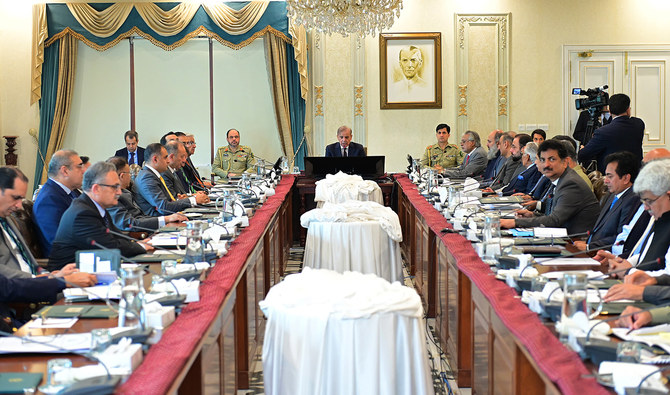
- Sharif says exports and remittances had shown a rise within one-and-a-half month of his government
- Pakistan’s finance ministry expects the economy to grow by 2.6 percent in the current fiscal year ending June
ISLAMABAD: Pakistan’s economic indicators are showing positive signs, with an agenda of painful reforms and privatization on track, Prime Minister Shehbaz Sharif said on Friday, ahead of an IMF board meeting to decide on a $1.1 billion funding for the country.
The prime minister said, in an address to his cabinet that was telecast live, that exports and remittances had shown a rise within one-and-a-half month of his government.
The IMF board is meeting on Monday to decide on the disbursement of the second and last tranche of a $3 billion standby arrangement Islamabad secured last summer to avert a sovereign default.
With a chronic balance of payment crisis, Pakistan needs $24 billion in payments for debt and interest servicing in the next fiscal year starting July 1 — three-time more than its central bank’s foreign currency reserves.
The South Asian nation is seeking yet another long-term, larger IMF loan. Pakistan’s Finance Minister, Muhammad Aurangzeb, has said Islamabad could secure a staff-level agreement on the new program by early July.
If successful, it would be the 24th IMF bailout for Pakistan.
The IMF-led structural reforms require Pakistan to raise its tax to GDP ratio from around 9 percent to at least 13 percent-14 percent, stop losses in state-owned enterprise and manage its energy sector losses which run into trillions of rupees.
“It is not just for an antibiotic to work anymore. It needs a surgery,” Sharif said.
Pakistan’s finance ministry expects the economy to grow by 2.6 percent in the current fiscal year ending June, while average inflation is projected to stand at 24 percent, down from 29.2 percent in fiscal year 2023/2024.
Inflation soared to a record high of 38 percent last May.
Pakistan joins calls by UN for ‘credible investigation’ into mass graves discovery in Gaza
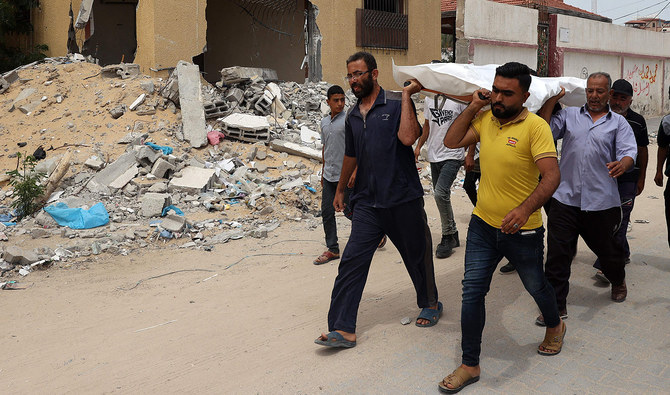
- Palestinian authorities say mass graves at Nasser and Al Shifa hospitals contain hundreds of bodies
- Pakistan says “independent and impartial investigation” must fix responsibility and punish perpetrators
ISLAMABAD: Pakistan said on Friday it joined the United Nations in calling for a “transparent and credible” investigation into the discovery of mass graves at two major hospitals in Gaza where over 34,000 Palestinians have been killed by Israeli attacks since October.
The discovery of the mass graves, said by Palestinian authorities to contain hundreds of bodies, have triggered calls by the UN rights chief and others for an international investigation. While not defined under international law, a mass grave is a burial site containing multiple bodies, the existence of which could be important in detecting possible war crimes.
Palestinian authorities said a grave site discovered at the Nasser hospital, the main medical facility in central Gaza, contained nearly 400 bodies. It was uncovered after Israeli troops pulled out of the city of Khan Younis.
Another grave site was also found by Palestinian authorities at the Al Shifa hospital in northern Gaza, which had been targeted by an Israeli special forces operation.
“Pakistan joins the calls by the United Nations for a clear, transparent and credible investigation of mass graves and the massacre of men, women and children by the Israeli occupation forces,” the foreign office spokesperson said at a weekly briefing in Islamabad.
“An independent and impartial investigation must be held to ascertain the facts, fix responsibility and punish the perpetrators of war crimes and crimes against humanity in Gaza.
“We urge the international community, especially the backers of Israel to take urgent measures to bring an end to the war on the people of Gaza. Lift the siege, protect civilians, facilitate humanitarian assistance and to hold to account the perpetrator of Gaza genocide.”
Currently, the International Criminal Court in The Hague has an active investigation into the attacks on Israel on Oct. 7 by Hamas and the response by the Israeli military.
The office of the prosecutor has jurisdiction in the Palestinian territories, but has not made any public comments about the discovery of mass graves.
Under the 1949 Geneva Conventions, to which Israel is a signatory, parties to a conflict must take all possible measures to prevent the dead from “being despoiled.” Customary international humanitarian law (IHL) calls for the dead to be respected, including a duty to prevent despoiling of graves and ensuring the identification and proper burial of human remains.
IHL also prohibits mutilation, desecration and other forms of disrespect toward the dead, while parties should take measures to protect grave sites, including those containing multiple human remains.
In 2002, in a case related to killings of Palestinians in the Jenin refugee camp in the West Bank, Israel’s Supreme Court ruled that the Israeli Defense Ministry was responsible under international law “for the location, identification, evacuation, and burial of the bodies” of Palestinians killed in fighting. The judges said bodies should not be buried in mass graves but handed over to the Palestinian authorities.
The International Criminal Court’s founding Rome Statute defines the desecration or mutilation of dead bodies as a war crime and this is banned as an outrage upon personal dignity.
Allegations by Palestinian authorities that the Israeli Defense Forces (IDF) had buried the bodies were “baseless and unfounded,” the IDF said in a statement. The graves were dug by Palestinians, it said, releasing footage showing the graves pre-dated IDF operations.
IDF forces searching for Israeli hostages had examined bodies buried near Nasser hospital and then returned them, the IDF said.
“The examination was carried out respectfully while maintaining the dignity of the deceased,” it said.
With inputs from Reuters
China says will continue investments in Pakistan after deadly suicide bombing
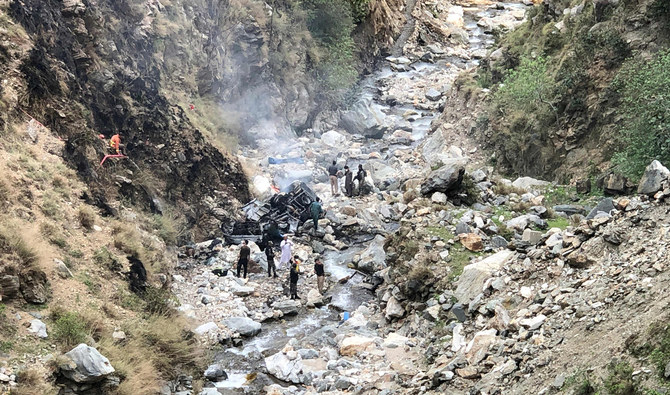
- On Mar. 26, suicide bomber hit a convoy of Chinese engineers working on Dasu hydropower project
- Five Chinese nationals and their Pakistani driver were killed in the attack in northwestern Pakistan
ISLAMABAD: The Chairman of the China International Development Cooperation Agency (CIDCA), Luo Zhaohui, said Beijing will continue to work with Pakistan to fulfill commitments made under the framework of the China-Pakistan Economic Corridor and the Global Development Initiative, Pakistani state news agency APP reported on Friday.
Luo’s statement comes a month after a suicide bomber rammed a vehicle into a convoy of Chinese engineers working on a hydropower project at Dasu in the northwestern Khyber Pakhtunkhwa province, killing five Chinese nationals and their Pakistani driver.
The assault on Mar. 26 was the third major attack in little over a week on China’s interests in the South Asian nation, where Beijing has invested more than $65 billion in infrastructure projects as part of its wider Belt and Road initiative.
Chinese contractors suspended work on three hydropower projects in view of security concerns after the March attack, government officials told media last month.
“China is ready to work with Pakistan to implement the consensus reached by the leaders of the two countries, further, deepen strategic mutual trust, and promote practical cooperation in various fields within the framework of the China-Pakistan Economic Corridor and the Global Development Initiative,” APP quoted Luo as saying.
“In his meetings with friends from various sectors during a recent visit to Pakistan, he hoped that friends from all walks of life would continue to exert their influence, and offer advice and suggestions for the development of bilateral relations.”
During the meetings, according to APP, Lou thanked Pakistani officials for “their long-standing contributions to China-Pakistan friendly cooperation, emphasizing the increasingly significant strategic importance of accelerating comprehensive cooperation between China and Pakistan and leading regional development trends.”
The Pakistani side expressed condolences over the Dasu attack and “highly praised the enduring traditional friendship” between Pakistan and China and their cooperation in various fields.
“They added that Pakistan will continue to support the development of Pakistan-China relations, advance exchanges on state governance, and expand friendly exchanges between the two countries in various sectors, including between governments, parliaments, business communities, think tanks, youth, and civil society,” APP said.
The Mar. 26 bombing followed a Mar. 20 attack on a strategic port used by China in the southwestern province of Balochistan, where Beijing has poured billions of dollars into infrastructure projects, and a Mar. 25 assault on a naval air base, also in the southwest. Both attacks were claimed by the Baloch Liberation Army (BLA), the most prominent of several separatist groups in Balochistan.
Dasu, the site of a major dam, has been attacked in the past, with a bus blast in 2021 killing 13 people, nine Chinese among them, although no group claimed responsibility, like the Mar. 26 bombing.
Pakistan is home to twin insurgencies, one mounted by religiously-motivated militants and the other by ethnic separatists who seek secession, blaming the government’s inequitable division of natural resources in southwestern Balochistan province.
Chinese interests are under attack primarily by ethnic militants seeking to push Beijing out of mineral-rich Balochistan, but that area is far from the site of the Mar. 26 bombing.


